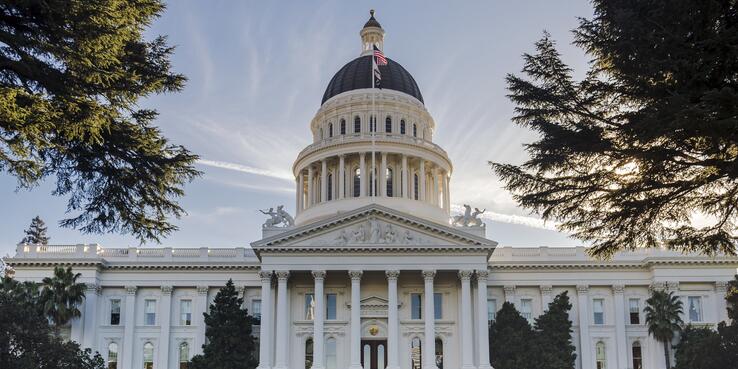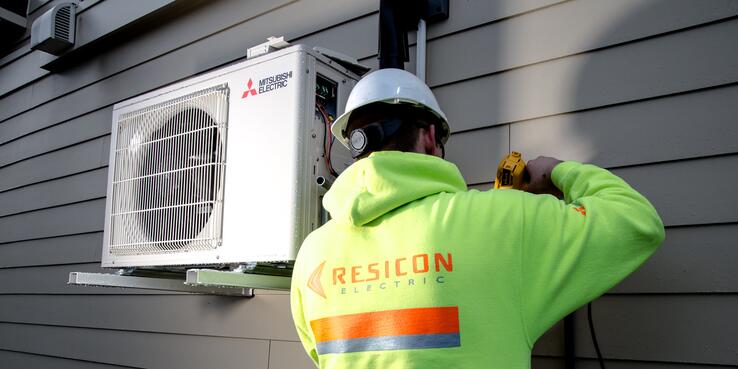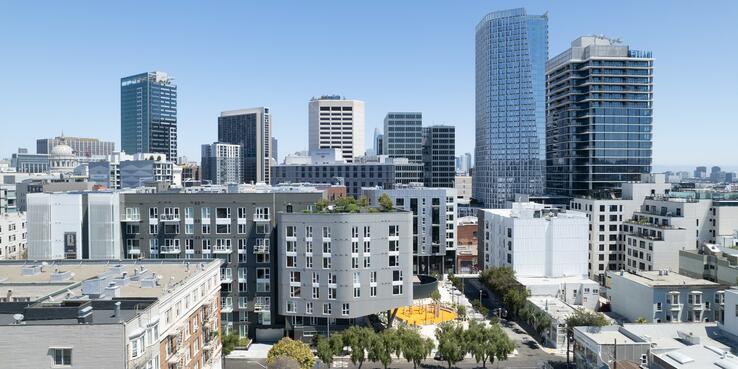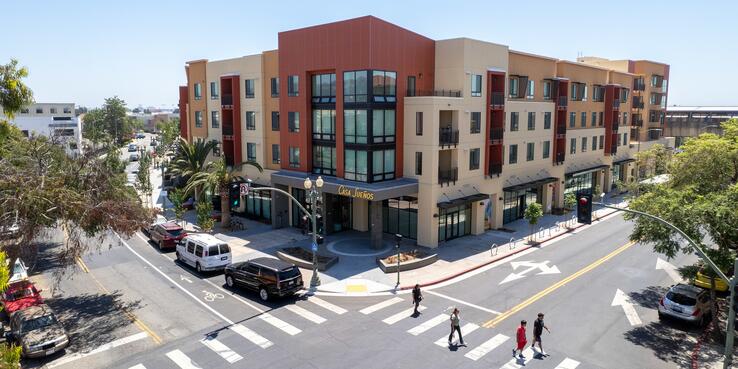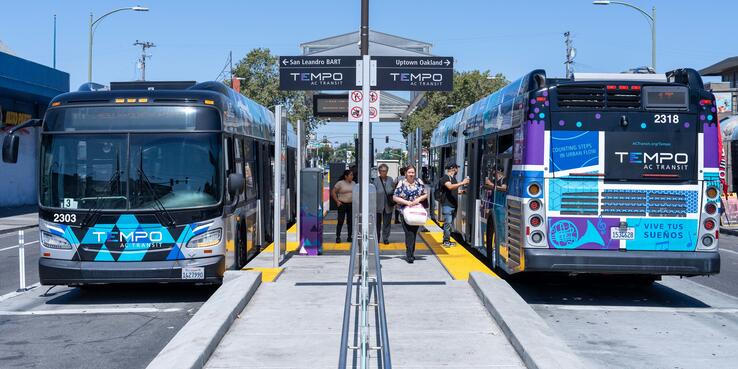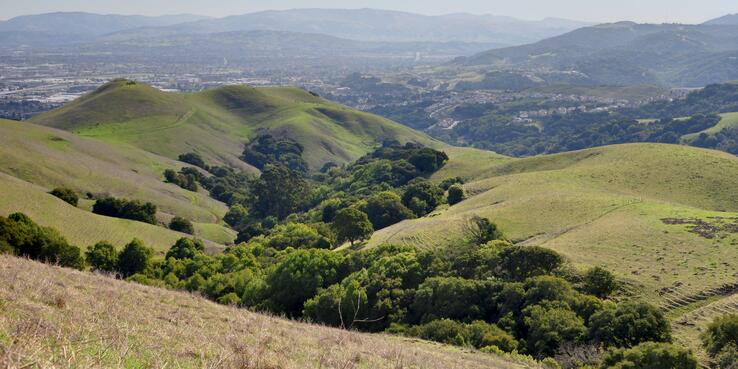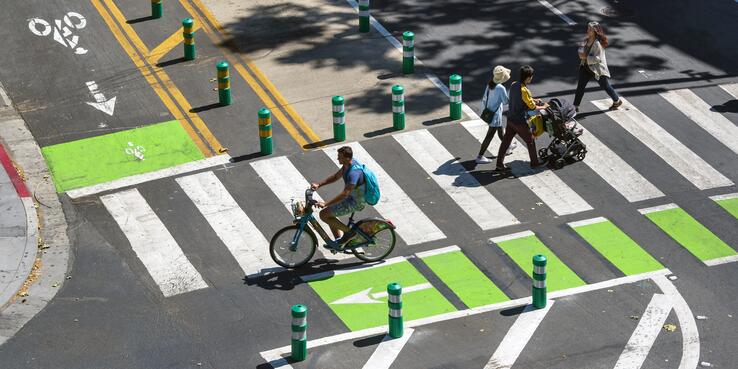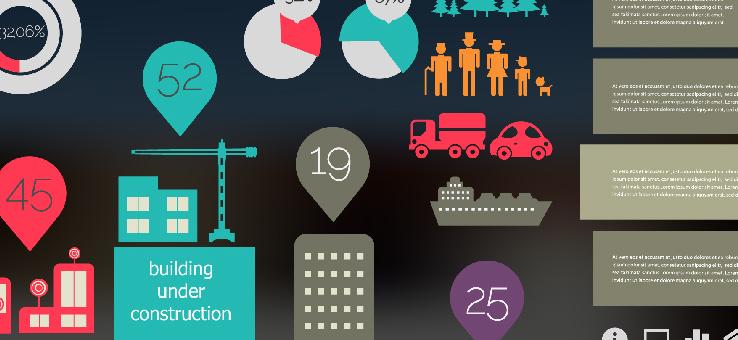
California’s Largest Pedestrian Project Expands the Vision of a SPUR-Led Climate Adaptation Plan
News / San Francisco voters recently passed a SPUR-cosponsored measure to realize the largest pedestrian project in California’s history. The permanent promenade along a two-mile stretch of the coastal highway expands the vision of SPUR’s 2012 Ocean Beach Master Plan, the core elements of which the California Coastal Commission just approved. The win: a resilient public coastline offering community benefits.
How SF Can Make the Most of Its Opportunity to Streamline Boards and Commissions
News / Earlier this year, SPUR published a report recommending that San Francisco define the purpose and role of its many commissions and reduce their overall number. The passage of Proposition E sets this work in motion. To ensure an outcome that better supports policymaking, SPUR proposes five steps to a data-driven, deliberative public process.
Smoothing the Transition to Heat Pumps, Part 3: State-Level Legislation
News / As the Bay Area phases out sales of gas water heaters and gas furnaces, property owners will need to install zero-pollution, high-efficiency electric heat pump devices in buildings when the existing devices fail. But the current process is complicated and expensive. In this installment of our series on improving the process, we explore state-level action to mandate, incentivize, guide, and resource simplified permitting at the local level.
A New Regional Approach to Shoreline Resilience
News / Bay Area jurisdictions on the shoreline are now required to develop sea level rise adaptation plans as part of a regionally coordinated approach managed by the San Francisco Bay Conservation and Development Commission. SPUR participated in an advisory group for the commission’s soon-to-be-adopted Regional Shoreline Adaptation Plan. With the passage of California Proposition 4, local sea level rise planning efforts could soon benefit from bond funding.
Remembering Joe Brown
News / The world lost a talented urbanist and visionary thinker, and SPUR a great friend, with the death of Joe Brown on October 31. A SPUR member for over 25 years, Joe was the former CEO of EDAW, which he merged into AECOM and became its chief innovation officer.
Harnessing Local Support for Transit as National Uncertainty Deepens
News / Pandemic relief funds for public transit are running out, and the funding environment for transit is likely to worsen under the incoming Trump administration and Republican-controlled congress. While regional consensus on a potential future ballot measure to fund transit has been elusive, finding support for additional funding here in the Bay Area is more critical than ever. SPUR offers five principles for a regional funding measure likely to offer the broadest appeal to legislators and voters.
November 2024 Election Results: Lots to Celebrate at the State and Local Levels
News / This election, the SPUR Voter Guide provided Bay Area voters with analysis and recommendations on 18 local and state measures. Many of our recommendations prevailed. Voters around the region chose to fund climate resilience, schools, public health facilities, violence reduction, and wildfire prevention, and they supported measures that aim to strengthen economic resilience, improve local governance, and prioritize walking and biking over cars.
What Happens Now? Filling an Unanticipated Open Council Seat in San José
News / With the resignation of San José Councilmember Omar Torres, many in District 3 are wondering what comes next and who will be representing them on the City Council. SPUR looks at the two possible paths forward and the considerations for balancing city needs with community representation.
Statement on the 2024 Presidential Election
News / SPUR CEO and President Alicia John-Baptiste reflects on the results of the presidential election. While things are not working for so many of us in this country, she argues, there is a different path forward we can still choose. One that builds a future based on love and cohesion rather than fear and division. We at SPUR remain committed to this path and will continue turning toward our community — rather than away from it — in the days ahead.
Take It From a Critic — Muni Is Actually Doing Great
News / As an advocate for high-quality transit, SPUR has at times been one of Muni’s critics. In a 2005 report, we argued that the agency was in a downward spiral, but now Muni appears to be enjoying a virtuous cycle. That cycle can only continue with voter support of Propositions L and M on the November ballot.
Six SPUR-Sponsored Bills Will Become California Law
News / The 2024 state legislative year ended with a number of big wins for SPUR and our partners in affordable housing and transportation advocacy. Governor Newsom signed hundreds of bills into law, including six pieces of SPUR-sponsored legislation that will make housing faster and easier to build, support development of interim housing for unhoused people, and make dangerous roads safer for pedestrians and bicyclists.
Smoothing the Transition to Heat Pumps, Part 2: Permitting and Inspections
News / As the Bay Area phases out sales of gas furnaces and water heaters, more and more property owners will need to install zero-pollution, high-efficiency electric heat pumps in homes. But the current process is complicated and expensive. City planners must quickly make that installation easier and more affordable. In a previous article, SPUR recommended zoning code strategies. In this installment, we explore permitting and inspection improvements.
The Loma Prieta Earthquake Inspired Major Resilience Efforts. Today, the Need to Invest Continues.
News / 35 years ago this week, the Loma Prieta earthquake was a wakeup call the Bay Area heeded. In the years since the magnitude 6.9 quake hit, state, regional, and municipal action has improved the seismic safety of the region’s buildings and other infrastructure. However, gaps remain in the region’s preparedness for the estimated 51% chance of a magnitude 7.0 earthquake in the next 30 years.
California Delivers Wins for Building Decarbonization
News / Moving California’s homes and other buildings off of health- and climate-harming gas heating will require a transition to electric heat pumps. This year, the state pressed some legislative and regulatory levers to speed that process. SPUR recommendations and advocacy helped shape these building decarbonization wins.
Prop. 5: Giving Communities Better Tools to Invest in Housing, Parks, and More
News / Local bond measures to fund essential services often garner the support of a majority at the ballot box yet fail to pass because they don’t meet California’s requirement that bonds be approved by a two-thirds supermajority. Proposition 5 would amend the state constitution to lower the voter approval threshold for bonds to fund housing, infrastructure, wildfire prevention, and parks.
Funding Regional Transit — and Managing Risk in Uncertain Times
News / SPUR is serving on an MTC-appointed select committee to explore legislation that would put a regional transit revenue measure on the ballot in a future election. Two other regional funding measure efforts — SB 1031 for transit, and the BAHFA bond for housing — were both paused earlier this year, casting a cautionary light on regional funding measures. Our recent comments to the committee focus on how to set up the current transit proposal for success.
Prop 4: Investing Now to Cut Future Climate Costs
News / California is already paying the cost of climate change impacts from devastating wildfires, droughts, floods, and other extreme weather events. By investing in climate action now, voters can reduce future costs both economic and social. California Prop. 4 would put $10 billion toward safe drinking water, drought resilience, ecosystem restoration, resilience to natural hazards, and more.
How a Governance Reset Could Improve San Franciscans’ Well-Being: Q&A with Nicole Neditch
News / San Francisco's system of governance has evolved over the decades into a complex web, making it hard for the city to implement policies and serve residents effectively. We spoke with Nicole Neditch about a new SPUR report that breaks down this complexity and proposes a redesign focused on leadership, empowerment, and accountability.
Smoothing the Transition to Heat Pumps, Part 1: Code Changes
News / As the Bay Area phases out sales of gas furnaces and water heaters, more and more property owners will need to install zero-pollution, high-efficiency electric heat pumps in homes. City planners must quickly make these installations easier and more affordable by amending municipal zoning ordinances and permitting processes. In the first article of a series on accelerating heat pump adoption, SPUR recommends four zoning code strategies.
It’s California’s Duty to Make Streets Safe for All Users
News / In 2023, an estimated 4,000 people died on California’s roadways. More than 30% of these traffic deaths happened on state-owned roads. It doesn’t have to be this way. SPUR — together with CalBike, WalkSF, StreetsforAll, KidSafeSF, and AARP California — is sponsoring Senate Bill 960 to make state roads that function as local streets safer by design. In this article, we share testimony from a California mom who lost her husband to a collision that safer street design could have prevented.










